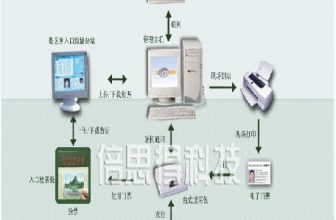
British scientists use RFID to enhance the safety of infertility treatment
[ad_1]
By accurately tracking every step in the process, a technology recently developed by British scientists can greatly increase the safety of infertility treatment.
This system, called IVF Witness (test-tube baby monitoring), was developed by a British research equipment company. It can protect the infertility treatment process and bring inner peace to those who wish to be parents. By electronically identifying sperm, eggs, final embryos and other materials used in IVF treatment cycles, the new technology helps reduce the risk of errors in infertility treatment.
By using non-invasive radio frequency identification, the system can track sperm, eggs and embryos of the recipient during treatment. If the wrong material is entered in the laboratory environment, IVF Witness will alert the staff through visual and auditory signals to prevent any material from being mislabeled.
Although errors in the laboratory are very rare, the newly invented automatic system can minimize the chance of errors.
Each RFID tag has a microchip that can play a unique digital fingerprint function to safely identify samples from the beginning and track them throughout the fertilization process.
Each person receiving treatment will get a unique RFID card, which will be used with all sample data of the person being treated, including the petri dishes and test tubes during the treatment of the person being treated. The entire system is electronically operated.
Bill Brown, who is in charge of this research, said: “Our goal is to develop a system that automatically tracks the eggs, sperm and final embryos of the recipient during infertility treatment, reducing the risk of mislabeling or errors.” He said, “Infertility treatment is a very precise and private process. IVF Witness maintains the integrity and safety of medical providers and recipients.”
Dr. Kevin M. Johnson, Medical Director of Overlake Reproductive Health in Seattle, USA, said: “For patients receiving treatment, even if there is no additional worry about possible confusion, IVF alone is already a great difficulty. We hope. Provide patients with complete peace of mind, and this is why we invested in the IVF Witness system of the two laboratories.”
In the UK, the Human Fertilization and Embryology Administration (HFEA), the UK regulatory agency, is supporting the use of electronic monitoring of all IVF clinics. Currently, HFEA requires all IVF clinics to at least “dual monitor” the IVF process, and two staff members must personally carefully check the labeling and handle all samples.
According to John Robinson, the head and scientific director of the IVF team in Hull, northern England, the IVF Witness system is different from the dual monitoring process and does not require two staff to operate it. He added: “It allows embryologists to work more safely and efficiently without having to interrupt their work frequently to check other colleagues. In terms of efficiency, it provides continuous and powerful safety checks, independent of what embryologists must do. In addition to numerous inspections, they are assisted.”
It is reported that IVF Witness is being used in infertility treatment institutions worldwide, including clinics in the United Kingdom and the United States. Since the launch of this latest technology, more than 20,000 infertility treatment cycles have used this technology to ensure the safety of the genetic material of the recipients.
[ad_2]




